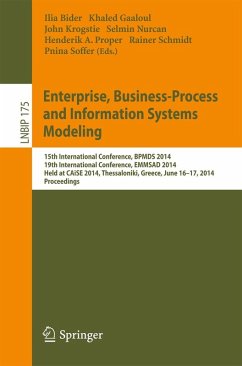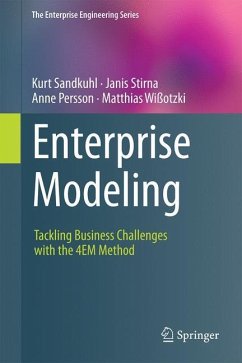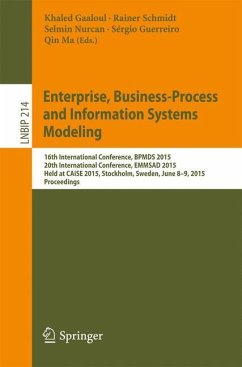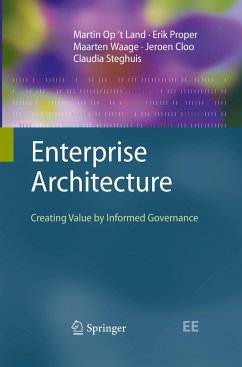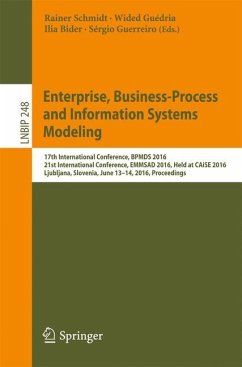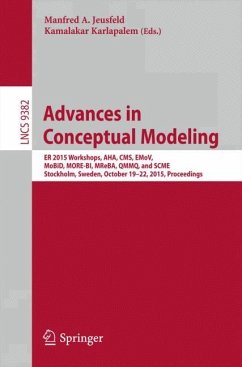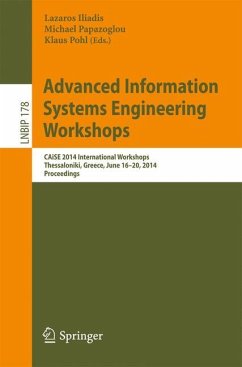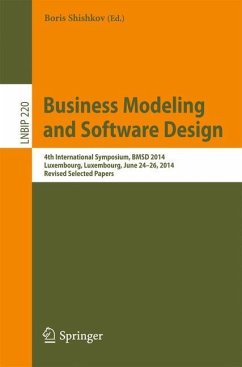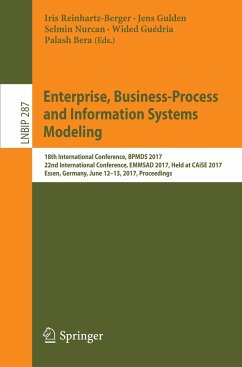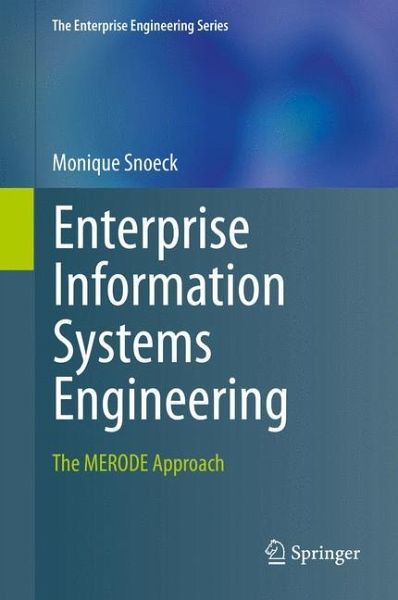
Enterprise Information Systems Engineering
The MERODE Approach
Versandkostenfrei!
Versandfertig in 6-10 Tagen
61,99 €
inkl. MwSt.
Weitere Ausgaben:

PAYBACK Punkte
31 °P sammeln!
The increasing penetration of IT in organizations calls for an integrative perspective on enterprises and their supporting information systems. MERODE offers an intuitive and practical approach to enterprise modelling and using these models as core for building enterprise information systems. From a business analyst perspective, benefits of the approach are its simplicity and the possibility to evaluate the consequences of modeling choices through fast prototyping, without requiring any technical experience. The focus on domain modelling ensures the development of a common language for talking...
The increasing penetration of IT in organizations calls for an integrative perspective on enterprises and their supporting information systems. MERODE offers an intuitive and practical approach to enterprise modelling and using these models as core for building enterprise information systems. From a business analyst perspective, benefits of the approach are its simplicity and the possibility to evaluate the consequences of modeling choices through fast prototyping, without requiring any technical experience. The focus on domain modelling ensures the development of a common language for talking about essential business concepts and of a shared understanding of business rules. On the construction side, experienced benefits of the approach are a clear separation between specification and implementation, more generic and future-proof systems, and an improved insight in the cost of changes.
A first distinguishing feature is the method's grounding in process algebra providesclear criteria and practical support for model quality. Second, the use of the concept of business events provides a deep integration between structural and behavioral aspects. The clear and intuitive semantics easily extend to application integration (COTS software and Web Services).
Students and practitioners are the book's main target audience, as both groups will benefit from its practical advice on how to create complete models which combine structural and behavioral views of a system-to-be and which can readily be transformed into code, and on how to evaluate the quality of those models. In addition, researchers in the area of conceptual or enterprise modelling will find a concise overview of the main findings related to the MERODE project.
The work is complemented by a wealth of extra material on the author's web page at KU Leuven, including a free CASE tool with code generator, a collection of cases with solutions, and a set of domain modelling patterns thathave been developed on the basis of the method's use in industry and government.
A first distinguishing feature is the method's grounding in process algebra providesclear criteria and practical support for model quality. Second, the use of the concept of business events provides a deep integration between structural and behavioral aspects. The clear and intuitive semantics easily extend to application integration (COTS software and Web Services).
Students and practitioners are the book's main target audience, as both groups will benefit from its practical advice on how to create complete models which combine structural and behavioral views of a system-to-be and which can readily be transformed into code, and on how to evaluate the quality of those models. In addition, researchers in the area of conceptual or enterprise modelling will find a concise overview of the main findings related to the MERODE project.
The work is complemented by a wealth of extra material on the author's web page at KU Leuven, including a free CASE tool with code generator, a collection of cases with solutions, and a set of domain modelling patterns thathave been developed on the basis of the method's use in industry and government.





